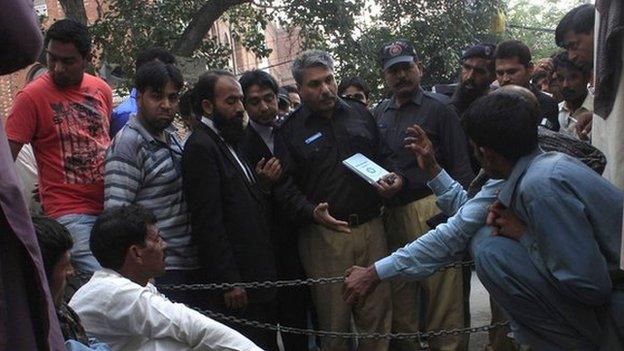Pakistan: Zeenat Rafiq who was burnt for eloping is buried
- Published
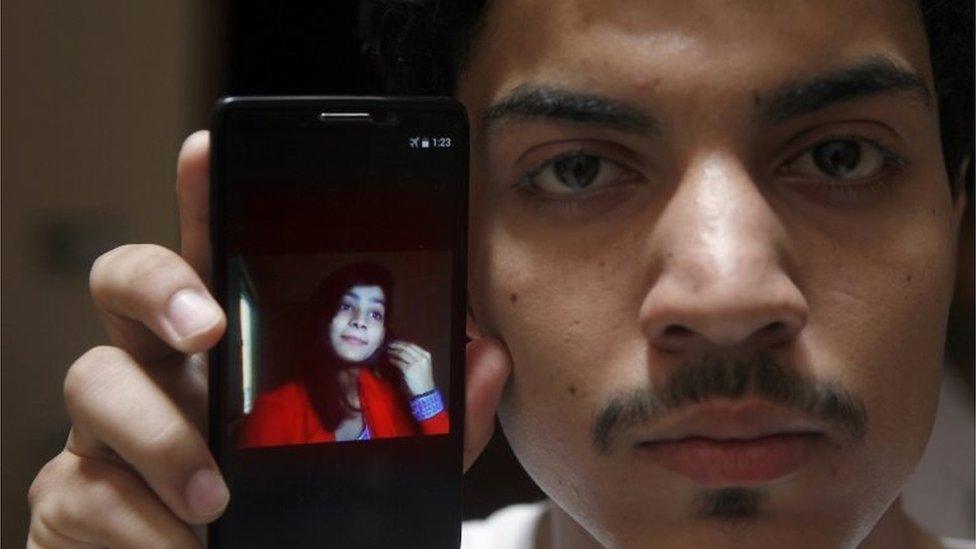
Hassan Khan said his wife's family had "lured her back", promising a wedding reception
A young Pakistani woman allegedly burnt to death by her mother for marrying without family consent has been buried.
Zeenat Rafiq was laid to rest by her husband's family before dawn in Lahore. Police said none of her relatives came forward to claim her body.
Her mother is in custody accused of luring her back from her in-laws.
It is the third such case in a month in Pakistan, where attacks on women who go against conservative rules on love and marriage are common.
Police say the body of Zeenat Rafiq, who was 18, showed signs of torture. She was doused with fuel and set alight.
It remains unclear whether she was still alive when she was set on fire. Results of a post mortem examination are awaited.
Ms Rafiq married Hassan Khan a week ago through the courts after eloping. They went to live with his family.
"When she told her parents about us, they beat her so severely she was bleeding from her mouth and nose," Mr Khan told BBC Urdu.
"Her family lured her back, promising reconciliation and a proper wedding reception. She was afraid, she said 'they are not going to spare me'. She didn't want to go but my family convinced her. How were we to know they would kill her like this?"
AFP news agency reported that the Rafiq home was locked up on Thursday and the family had left.
"Why have they gone when everybody is coming to share their grief?" one neighbour Muhammed Asghar said.
Last week a young school teacher, Maria Sadaqat, was set on fire in Murree near Islamabad for refusing a marriage proposal. She died of her injuries.
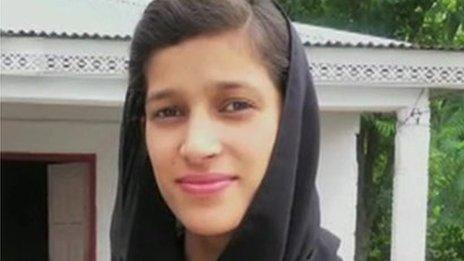
Maria Sadaqat suffered burns all over her body and died three days later
A month earlier village elders near Abbottabad ordered the murder of a teenage girl who was burnt to death because she helped a friend to elope, police said.
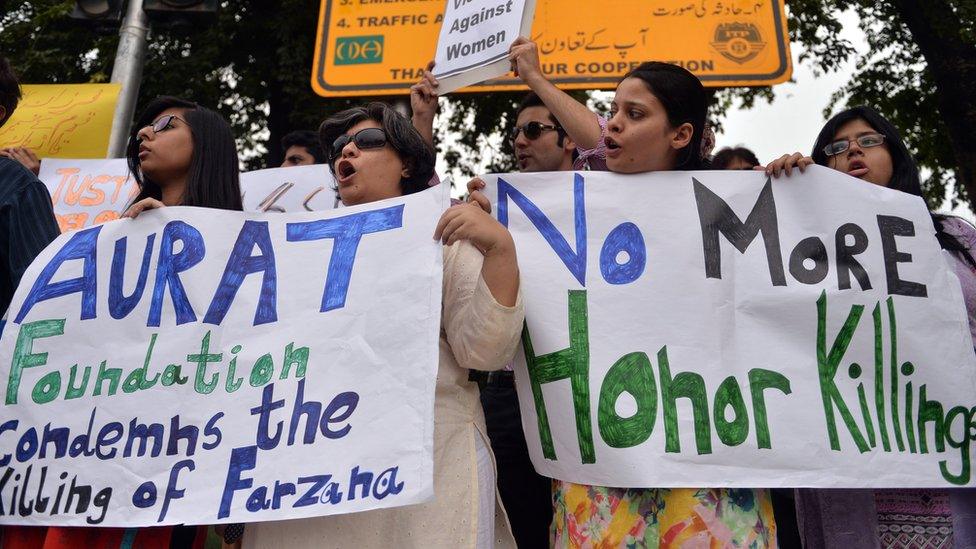
Women have been demanding an end to violence against them - but many in Pakistan oppose a law to protect them
Protests over new law
Nearly 1,100 women were killed by relatives in Pakistan last year in so-called honour-killings, the independent Human Rights Commission of Pakistan (HRCP) says. Many more cases go unreported.
Violence against women by those outside the family is also common.
Punjab province, where the two latest attacks happened, passed a landmark law in February criminalising all forms of violence against women.
However, more than 30 religious groups, including all the mainstream Islamic political parties, threatened to launch protests if the law was not repealed.
The Council of Islamic Ideology, which advises the government, then proposed making it legal for husbands to "lightly beat" their wives. It was criticised as a result.
Religious groups have equated women's rights campaigns with promotion of obscenity. They say the new Punjab law will increase the divorce rate and destroy the country's traditional family system.
- Published8 June 2016
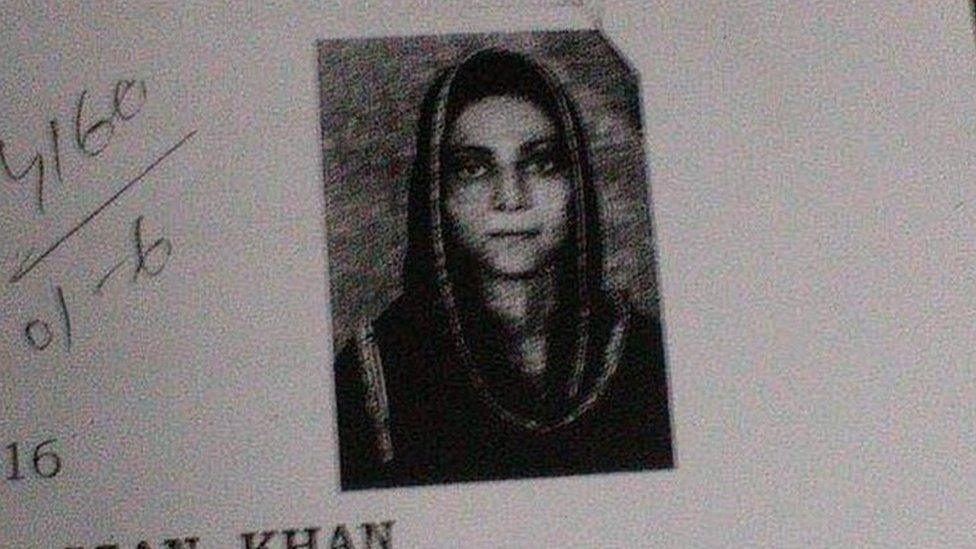
- Published1 June 2016
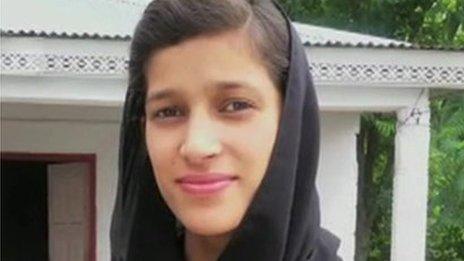
- Published31 May 2016
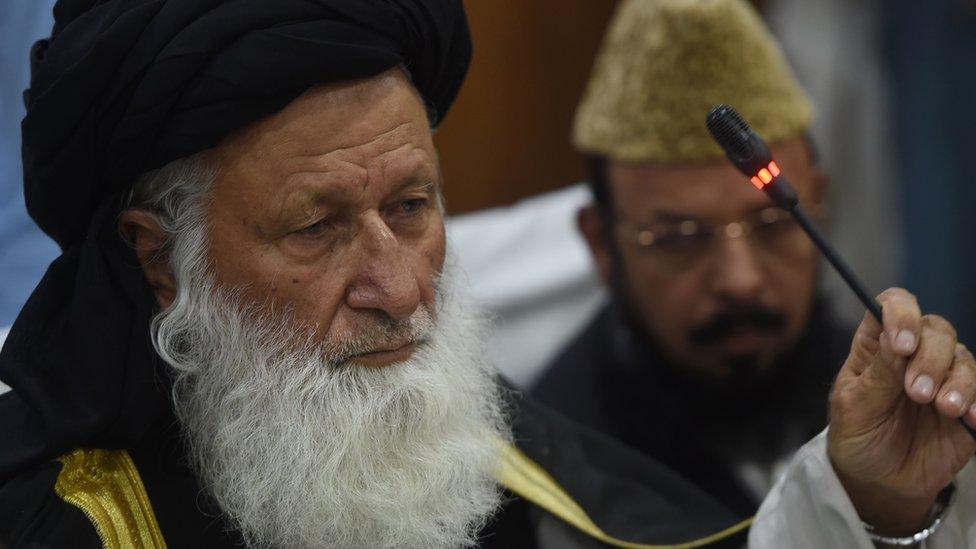
- Published5 May 2016
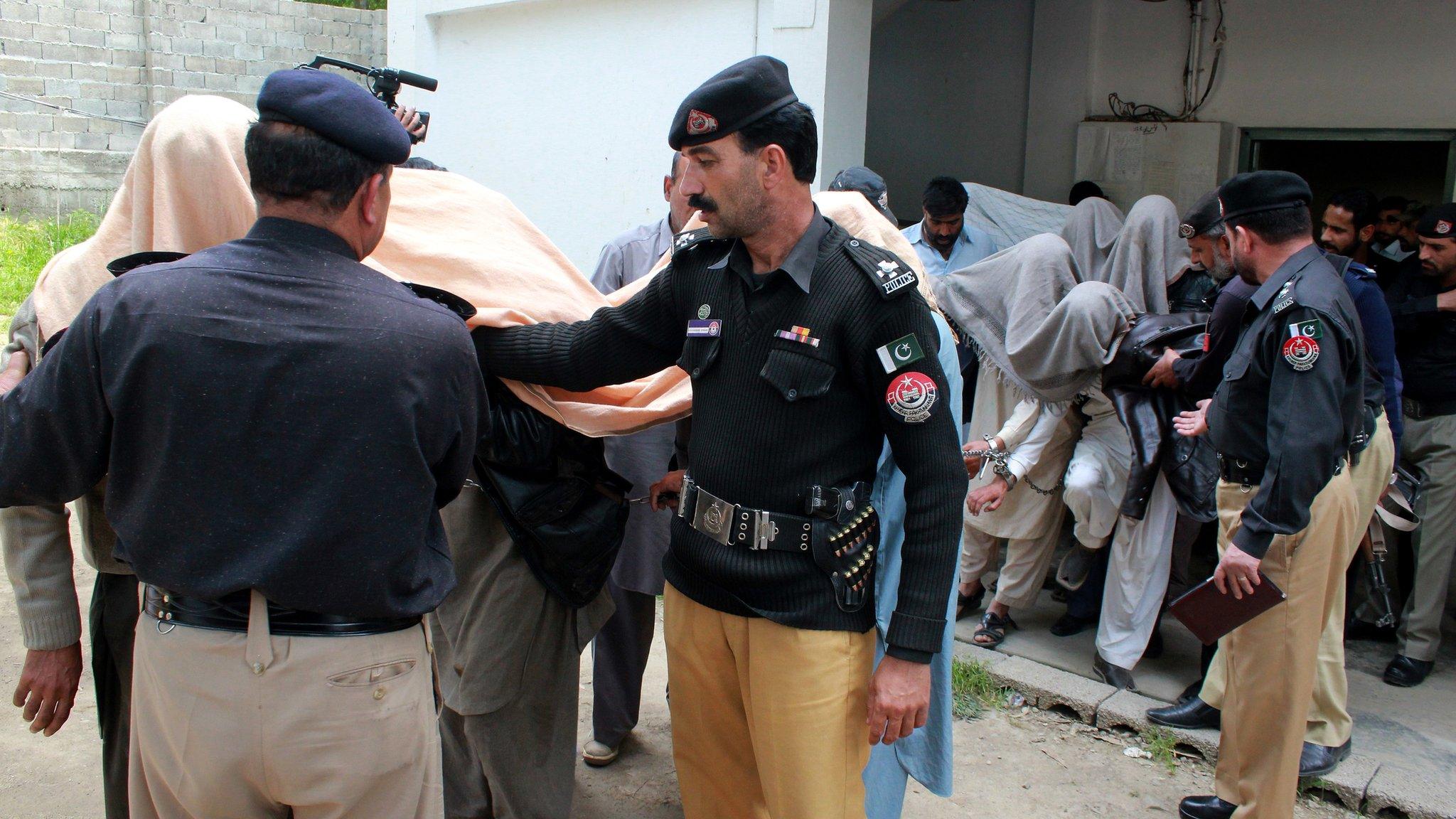
- Published17 March 2016
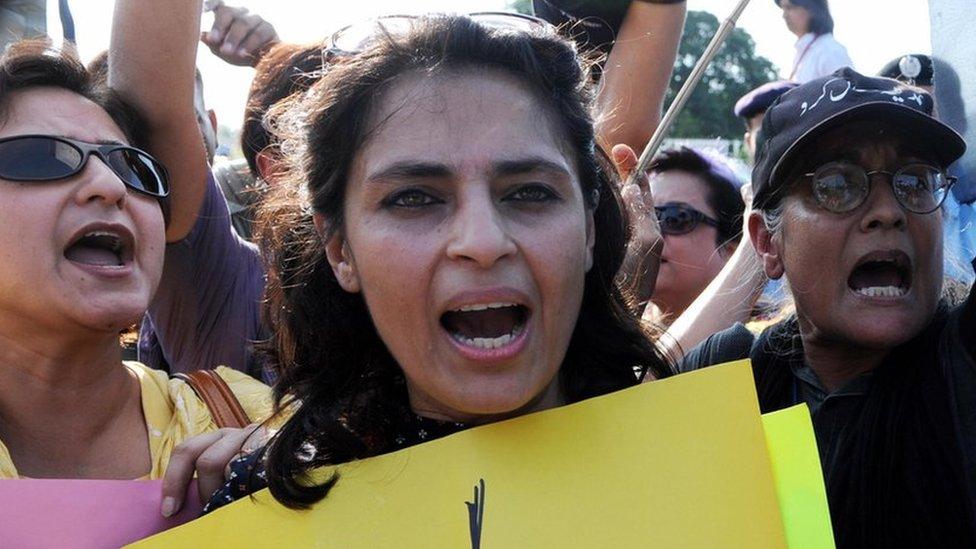
- Published12 December 2014
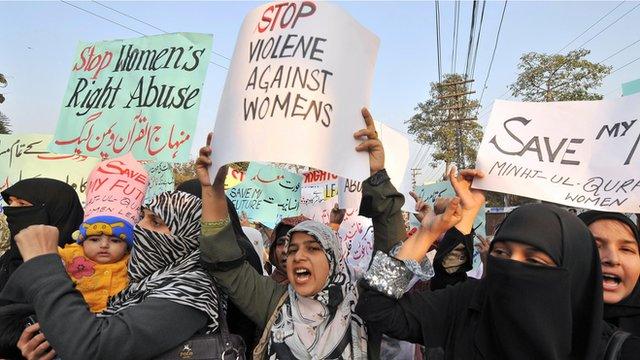
- Published27 May 2014
